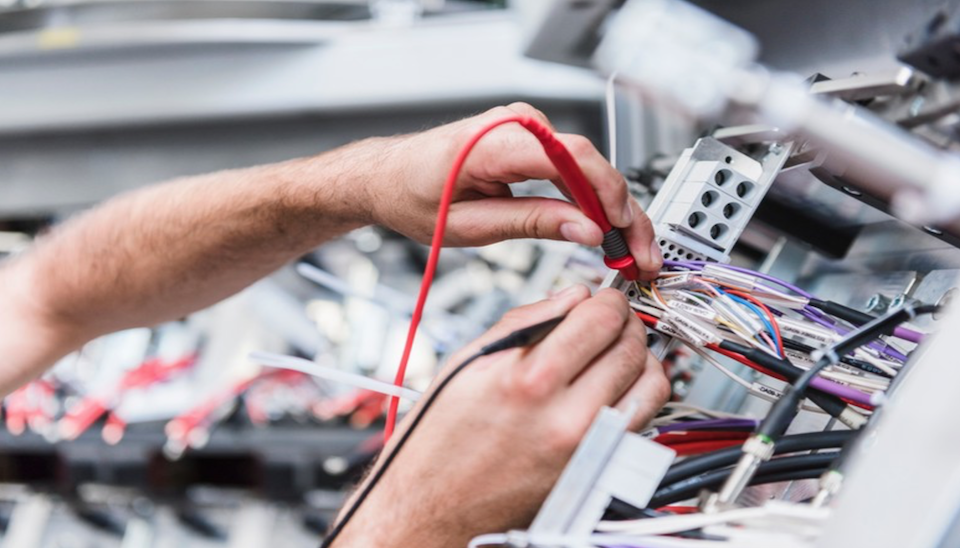What is an electrical safety inspection EICR?
An Electrical Installation Condition Report (EICR), or periodic inspection report as they used to be called are often referred to by customers as a Landlord Safety Test or Homebuyers Test.
Electrical Installation condition reports (EICR) are provided as an official document given after an assessment by a qualified engineer or electrician. The assessment is based on the quality and current condition of your electrical installation. The electrical installation condition reports should be carried out regularly every 5 to 10 years depending on condition, type and usage of the property.
Whether it’s your home, a business or a property you rent out, your electrical installation should always be covered by an up-to-date Electrical Installation Condition Report (EICR). Although it’s not a legal requirement to have an Electrical Condition Report many legal documents refer to an Electrical Condition Report as a way of satisfying their requirements – The Electricity at Work Act as one example.
The Electrical Safety Standards in the Private Rented Sector (England) Regulations 2020
From 1st June 2020, private landlords in England will be required to have the electrical installation in their rental properties checked by a qualified electrician to ensure that they are safe.
This means that:
- Electrical installations must be inspected and tested prior to the start of a new tenancy from 1st July 2020.
- Checks must be carried out on any existing tenancies by 1st April 2021.
These checks must then be carried out on a five yearly basis.
A copy of the most recent electrical safety condition report (EICR) must be provided to both new and retained tenants.
The landlord is responsible for making sure that the person who completes the check is suitably competent. Using an electrician or firm that is a member of an accredited registration scheme operated by a recognized body will give you the confidence that this has been achieved.
What is inspected in an EICR?
During an EICR, the consumer unit (or fuse board), wiring and electrical accessories are thoroughly tested and inspected for faults or deviations from the latest edition of Wiring Standards. Throughout the test, the following will be inspected and tested:
- The adequacy of the earthing and bonding.
- Devices for protection against fire and electric shock.
- Any damage or wear and tear that might affect the safety of the properties inhabitants.
- Identification of any damaged electrical fittings and accessories.
- Identification of any exposed live wires that could cause a fire or injury.
How can you prepare for an EICR inspection?
- Be aware that our electrician will need to turn the power off before working on the wiring. You will not have access to any electrical gadgets, so it may not be the best day to work from home. It is possible to put circuits back on once they’ve been tested, but it will slow down the process.
- Ensure our electrician has free access to all lights, sockets and light switches. This means clearing areas where they will need to work before they arrive.
- Don’t expect our electrician to issue you with a quote for remedial works immediately. It will take approximately 48 hours to process the data from the check itself before they can do this. It can take longer, particularly if you need extensive remedial works, which require a further visit from our electrician to discuss options before they can issue a quote.
- Expect the report to uncover some ‘failures’ in your wiring system. Just because your lights switch on, it doesn’t mean the underlying system is safe.
- Provide any previous testing records i. e. Electrical Installation Certificate (schedule of tests and schedule of inspection), EICR, minor work certificate, etc.
How much will it cost & is there anything you need to be aware of ?
The Wiring Regulations BS7671 give guidance on testing and sample testing in particular. In larger installations, it is acceptable to just test a sample of the final circuits (lighting and socket circuits). This sample can go as low as 10%, obviously, this can give a misleading view of an installation and is not recommended.
Typically this can lead to one contractor pricing to test 10% of the circuits whilst another more thorough contractor may test 75-100% of the circuits. For this reason, it is important to check what percentage your chosen contractor will be testing when comparing prices. A third scenario that we also frequently come across is contractors who will price an EICR at a loss on the basis that they will inflate the costs of the remedial works to make up for the initial low cost of the test (and often a considerable amount more).
Intechstone standard prices for a Domestic Electrical Condition Report start at £200 plus vat for up to six circuits with additional circuits charged at £20 plus vat per circuit. A typical three bedroom property will take around four hours to complete.


